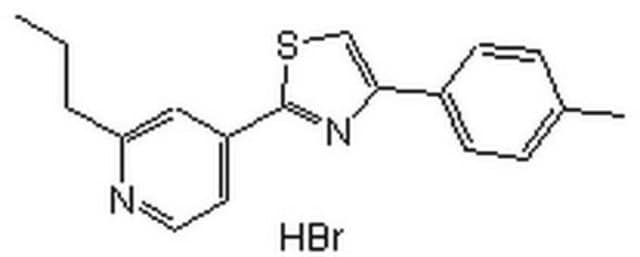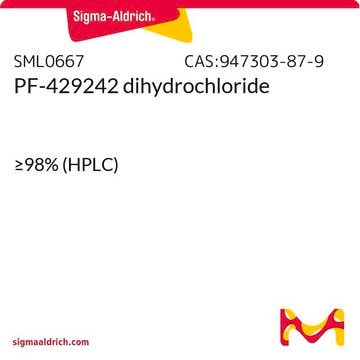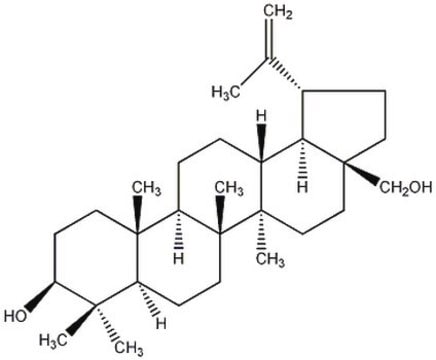F8932
Fatostatin hydrobromide
≥98% (HPLC), powder
Synonym(s):
25B11 hydrobromide, 4-[4-(4-methylphenyl)-2-thiazolyl]-2-propylpyridine hydrobromide, Fatostatin A hydrobromide; 2-(2-propylpyridin-4-yl)-4-p-tolylthiazole hydrobromide
About This Item
Recommended Products
Quality Level
Assay
≥98% (HPLC)
form
powder
storage condition
desiccated
color
light yellow to yellow
solubility
DMSO: ≥10 mg/mL
storage temp.
2-8°C
InChI
1S/C18H18N2S.BrH/c1-3-4-16-11-15(9-10-19-16)18-20-17(12-21-18)14-7-5-13(2)6-8-14;/h5-12H,3-4H2,1-2H3;1H
InChI key
RJCFNQZVFUMORB-UHFFFAOYSA-N
General description
Application
- to study its anti-cancer activity and effects on mitotic microtubule spindle
- to study its effects on stomatal development
- to prevent SREBP cleavage-activating protein (SCAP)-mediated escort of sterol regulatory element-binding proteins (SREBPs)
Biochem/physiol Actions
Storage Class Code
11 - Combustible Solids
WGK
WGK 1
Flash Point(F)
Not applicable
Flash Point(C)
Not applicable
Certificates of Analysis (COA)
Search for Certificates of Analysis (COA) by entering the products Lot/Batch Number. Lot and Batch Numbers can be found on a product’s label following the words ‘Lot’ or ‘Batch’.
Already Own This Product?
Find documentation for the products that you have recently purchased in the Document Library.
Our team of scientists has experience in all areas of research including Life Science, Material Science, Chemical Synthesis, Chromatography, Analytical and many others.
Contact Technical Service







